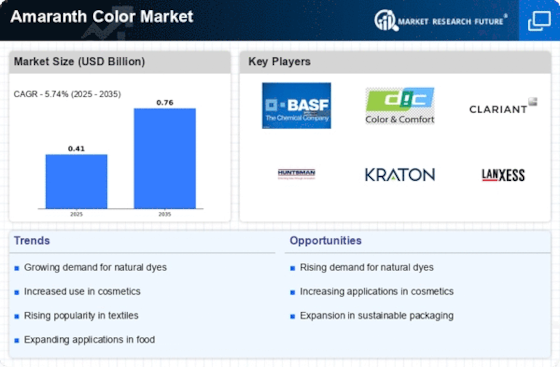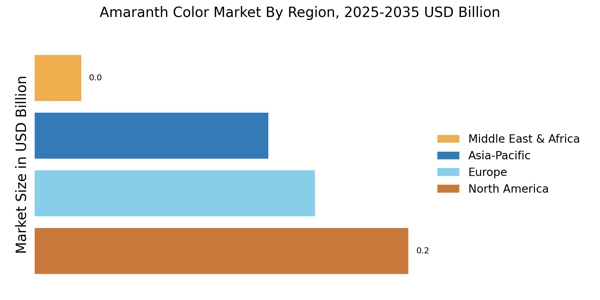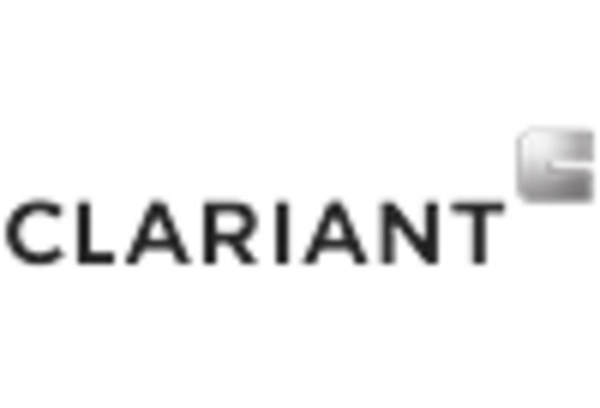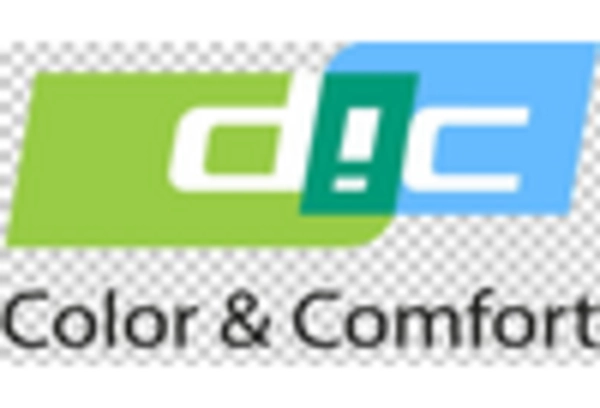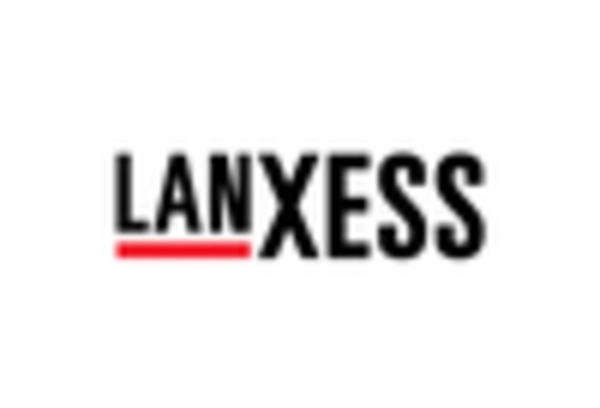Rising Demand for Natural Dyes
The amaranth Color Market is experiencing a notable increase in demand for natural dyes, driven by a growing consumer preference for eco-friendly products. As industries such as textiles and cosmetics shift towards sustainable practices, the use of natural colorants like amaranth is becoming more prevalent. According to recent data, the market for natural dyes is projected to grow at a compound annual growth rate of approximately 5.5% over the next five years. This trend indicates a significant opportunity for the amaranth color Market to expand its reach and cater to environmentally conscious consumers. Furthermore, the shift towards organic and natural products is likely to enhance the market's appeal, as manufacturers seek to align their offerings with consumer values.
Growth of the Cosmetics Industry
The Amaranth Color Market is benefiting from the rapid growth of the cosmetics sector, where natural and organic products are increasingly favored. Amaranth's vibrant color properties make it an attractive option for cosmetic formulations, including lipsticks, blushes, and skincare products. The cosmetics market is projected to grow significantly, with a focus on clean beauty trends that emphasize the use of safe and natural ingredients. This shift is likely to enhance the demand for amaranth as a colorant, as consumers become more discerning about the products they use. The Amaranth Color Market stands to gain from this trend, as brands seek to differentiate themselves by incorporating natural colors into their offerings.
Expansion in Food and Beverage Sector
The Amaranth Color Market is poised for growth due to its increasing application in the food and beverage sector. Amaranth, known for its vibrant red hue, is utilized as a natural food coloring agent in various products, including beverages, confectionery, and dairy items. Recent statistics suggest that the food coloring market is expected to reach USD 3.5 billion by 2026, with natural colors gaining a larger share. This expansion presents a lucrative opportunity for the Amaranth Color Market, as manufacturers seek to replace synthetic dyes with natural alternatives. The rising consumer awareness regarding food safety and health implications further propels the demand for natural colorants, positioning amaranth as a preferred choice among food producers.
Regulatory Support for Natural Products
The Amaranth Color Market is benefiting from increasing regulatory support for natural products, which encourages the use of natural colorants in various applications. Regulatory bodies are progressively recognizing the safety and efficacy of natural dyes, leading to favorable policies that promote their use in food, cosmetics, and textiles. This regulatory environment is conducive to the growth of the Amaranth Color Market, as it alleviates concerns regarding safety and compliance. Additionally, as regulations tighten around synthetic dyes, the demand for natural alternatives like amaranth is likely to rise. This trend not only supports market growth but also aligns with the broader movement towards sustainability and health-conscious consumer choices.
Technological Advancements in Color Production
The Amaranth Color Market is witnessing advancements in production technologies that enhance the extraction and application of amaranth colorants. Innovations in extraction methods, such as supercritical fluid extraction and enzymatic processes, are improving the efficiency and yield of natural dyes. These technological improvements not only reduce production costs but also ensure higher quality and consistency in color output. As manufacturers adopt these advanced techniques, the Amaranth Color Market is likely to see increased competitiveness and market penetration. Furthermore, the ability to produce amaranth colorants at scale may attract new players to the market, fostering a more dynamic and diverse industry landscape.


